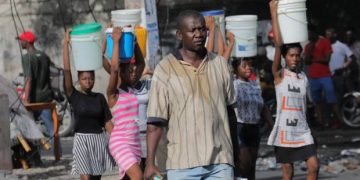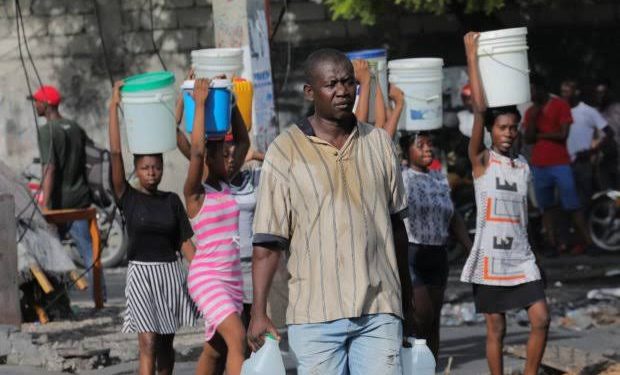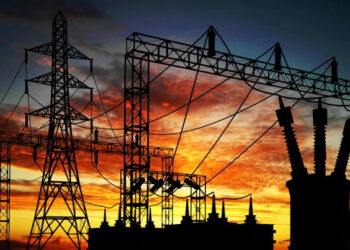By Oyintari Ben
In Port-au-Prince, the capital of Haiti, water service has slowed or stopped as a result of days of protests over crime and fuel prices.
On Saturday, witnesses stated that thousands of people in Haiti were experiencing water shortages as a result of days of protest that had all but stopped distribution. An impending storm also added to the country’s anxiety.
This week, protests about fuel price hikes and violence led many inhabitants of Port-au-Prince, the capital of Haiti, to take cover at home as shooting broke out and burning tires blocked streets.
This caused businesses that usually transport water to the city, whose daily highs have been 34 degrees Celsius [93 degrees Fahrenheit], to slow down or stop.
Several rushed to distribution facilities to stockpile a few days’ worth of water and cooking gas, which has already run low in many localities, on Saturday when there was scheduled to be a half-day truce.
Apprehension regarding the next tropical storm Fiona contributed to the haste to fetch water.
The Dominican Republic, which is located in the eastern part of the island of Hispaniola, was predicted to get the storm’s highest rainfall.
Many people, according to Jean-Denis Severe, a resident of Fort National, had to drive far distances to fill buckets and bottles before lugging them back home.
“Since there are blockades throughout the nation, we came here to get water. I live in Fort National. We would starve to death from thirst if these areas didn’t exist,” he claimed.
The most recent turmoil in the nation occurred at a time when gang violence had killed hundreds and driven thousands of people from their homes, and inflation had risen to its highest level in ten years.
A resident of Port-au-Prince named Richardson Adrien told the news agency Reuters that the shortage of drinkable water was just the most recent issue. In recent months, locals have also had trouble finding fuel, which has prevented some of them from working.
It can be difficult to find clean water. We search everywhere for it, but we can’t locate it. You can’t find water, so we added Clorox to the water to make it drinkable.
An inquiry for comment was not immediately answered by the Haitian authorities.




































